B2B: Ital & Magic Touch
Daniel Martin-McCormick and Damon Palermo could both easily be counted among the busiest, hardest-working artists […]
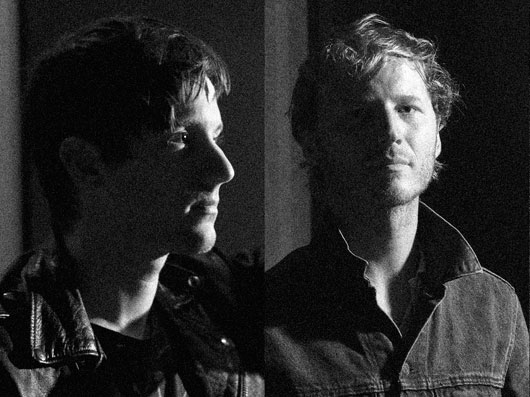
B2B: Ital & Magic Touch
Daniel Martin-McCormick and Damon Palermo could both easily be counted among the busiest, hardest-working artists […]

Daniel Martin-McCormick and Damon Palermo could both easily be counted among the busiest, hardest-working artists active today. The guys might be best known for their work in the shapeshifting Mi Ami, though Palermo also puts in time drumming for krauty psych outfit Jonas Reinhardt and Martin-McCormick has toyed with experimental noise music as Sex Worker for several years (not to mention his involvement with D.C. post-hardcore band Black Eyes in the early aughts). But after Martin-McCormick’s shift in location last year (he’s now based in Brooklyn, leaving Palermo in San Francisco), both musicians have found themselves with the opportunity to properly explore a realm of sound they’d previously only flirted with: dance music.
Palermo took on the moniker Magic Touch and Martin-McCormick opted to call his new solo project Ital, each of them diving deep into their new production endeavors with heavy influences of stripped-down house music and touches of disco. It was only a matter of time before record labels would hear their new tunes, and 100% Silk, a dance-centric sub-label of the LA-based Not Not Fun imprint that was apparently inspired by a mixtape Martin-McCormick made for label head Amanda Brown, was first to arrive.
Ital’s first 12″ marked the inauguration of Brown’s new record hub in January of 2011, which was quickly followed by a slew of other left-of-center, club-leaning singles from the likes of Estonian outsider-disco artist Maria Minerva and Brooklyn house duo Innergaze. Magic Touch’s own debut single, “I Can Feel the Heat,” just recently dropped, as did Martin-McCormick’s follow-up record, the stellar “Only For Tonight.” Everything took off practically overnight for the two friends, and it doesn’t seem to be slowing down any time soon. Mi Ami is currently working on the follow-up to this year’s solid Dolphins EP (slated for release on 100% Silk), Ital will release an EP via Planet Mu this coming January, and both artists will soon embark on separate European tours.
Amidst the flurry of live performances, studio time, and travel, we asked Palermo and Martin-McCormick to sit down together to catch up on what they’ve been doing the past year or so. They share laughter, a bit of nostalgia, and some reflective moments, which should be expected when two band mates that no longer live in the same city come together to discuss their lives and their work. The pair also touch on the differences between making music alone and playing together, talk about how computers and gear factor into each of their sounds, and contemplate the world of contemporary dance music.
Ital: I remember, over the years, you were buying sequencers and synthesizers. Not a lot of them, but there was always new gear you were getting off eBay that seemed promising. It would sit around for a while, and you would kind of meditate on it. Then all of a sudden you had these tracks. I was pretty impressed because I wasn’t sure what was going to happen with that gear. How do you think that all came about?
Magic Touch: I think when Mi Ami first started, we had that TR-707. And when Jacob [Long] left the band, we got an MPC, but that wasn’t working. I think I was partly trying to get gear for the new shift with Mi Ami, and then I also had some stuff I was trying to use with Jonas Reinhardt. Everything was kind of for all of the separate bands at the same time. Then you moved, and I wasn’t using it for Jonas Reinhardt as much, so I sort of had it all in one spot in my house. For a while some of the gear was there, and some was at the practice space for the bands, so I wasn’t sure how to use it as a whole. Was it after you left or during the time you were still in SF when I started putting everything together?
I: Well, you’d started to use the sampler for the new Mi Ami stuff as a duo.
MT: That’s right.
I: Before then, in 2010, you’d been working on tracks in Ableton. You had all those loops going. I feel like maybe you loaded all those loops into the sampler at some point after I left, and used that to give yourself a frame to work from.
MT: Yeah, I think when Mi Ami was in Europe the third time I was trying to sort of do the tracks on the computer. I didn’t have a specific idea in mind, really, I was just trying to put some stuff together. I think when we got back, shortly after you left, I started putting more of it together on the gear. I think also what brought it together was collaborating with Josh [Anzano of Corinne] and Honey [Owens of Miracles Club]. When I had their solo productions to pair with my loops, it helped me structure the songs. So, to answer your question, I had a lot of stuff, but never really put it all together. Now, I think I have a better idea of how everything works, whereas before it seemed kind of unfathomable.
I: Yeah, a lot of it still seems unfathomable to me. [laughs] Your solo stuff still has some collaborative aspects though, so how do you think it’s different from our band?
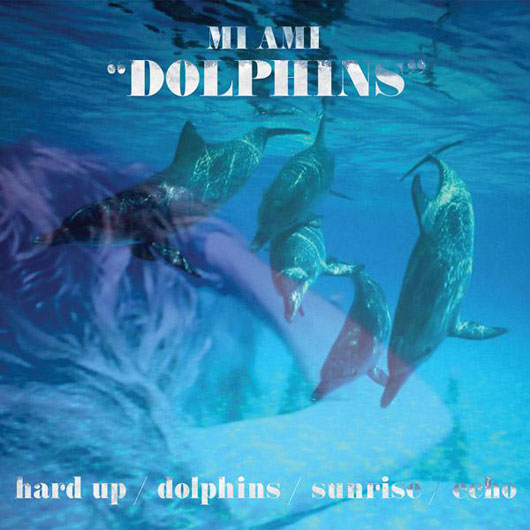
MT: Well, I think Mi Ami was so much about the live aspect, and working on these songs is more… You know I was just working on them a lot in my room, not really thinking about [playing them] live as much, so it’s kind of almost the opposite way I’m used to working.
I: I wonder, did it feel sort of liberating? Because we’d been doing the band for a while, so there was a kind of momentum and a certain amount of expectation—like, this record is different from the last record…
MT: I’d say yes and no. The reason I’d say no is because, even though I [felt liberated] at first, I quickly realized that when you’re working alone, you can put yourself in a trap more than with a band. The band is people working together, but when it’s just yourself, it’s easy to be, like, “Oh, no. This isn’t cool,” or, “This is not exactly what I was thinking.” In a way, it was awesome to just start from scratch. I feel like, with the band we had our sound, and to start without that is pretty interesting.
I: Yeah, it’s interesting working in a situation where you can control all the parts—whether you’re sampling them, writing them, or whatever—and you don’t have to worry about what anybody else wants. You create it so much from home, almost like it’s straight out of your brain instead of having to balance everything with the limitations of a live set up or the limitations of your technical ability. That is kind of refreshing. But it can be such a strange feeling if you don’t know what you want, or you’re sitting around waiting for inspiration to come, and you’re all alone.
MT: Also, with the band, you just go into the practice space and sort of let it out. But when you’re in your room, or wherever, you’re just, like, messing with the sound of the hi-hat.
I: [laughs] You gotta get it perfect.
Magic Touch by Aurora Halal
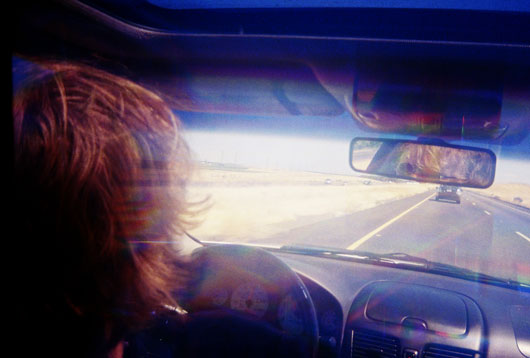
MT: That’s actually one thing that’s a big difference: doing something physical. In my songs, there’s keyboard parts that are played, but there’s no really loud aspect, like being in a practice space.
I: Do you miss that?
MT: Yeah, I do. Even with the songs I make, I wish it was more like a band setup instead of just me doing all this stuff.
I: When we met, we kind of bonded over disco and dance music. And I remember, as a three-piece, we would listen sometimes to, like, Dinosaur Jr. and Neil Young, but there wasn’t a lot of rock that any of us were listening to all together.
MT: Even Jacob, though he wasn’t into the same kind of dance music, was into dubstep, dub, and other forms of electronic music.
I: Do you feel like this is a truer expression of you, cause it’s closer to the music you listen to at home?
MT: It’s hard to say. Because even when I was playing drums and stuff, there’s a strong feeling there… Yeah, I’m not sure.
I: So, even though [Magic Touch] is maybe stylistically closer to what you’re into, you prefer the overall experience of being in the band?
MT: Yeah, because you’re, like, in the zone. [laughs] When I [perform as Magic Touch], I am, too, but not so much when I’m working on a track over and over. But it is cool. I feel like when your stuff came out and my stuff came out, a lot of DJs started coming to San Francisco and everywhere else that weren’t really coming around in, like, 2002. Older guys like Virgo and Anthony “Shake” Shakir are sort of re-emerging, and there’s all this excitement for stuff that happened 20 years ago, which is really cool. I feel like everything kind of hit at the same time.
Ital
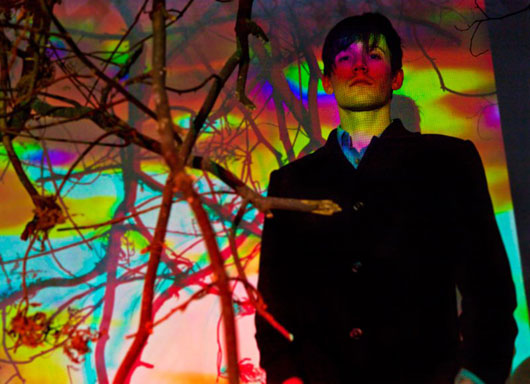
I: It’s funny. I remember living in San Francisco, and how, when I first wanted to go out to hear DJs, it was awful. There was so much bad ‘electronica,’ and tons of, like, pro-soul patch, shaved head minimal DJs. The converstation really seemed to be about clean, minimal music, like, “Oh, that track is deep,” and it would have a two-note melody.
MT: That sort of stuff is still happening, but maybe not as much.
I: It sort of feels like there is a new wave of dance music that’s less, like, ‘modern European’ and more English and American. It’s exciting. Even when we were DJing the other night, I was surprised so many people were out dancing on a Thursday. In the past, it would be so hard to get people to come out if there wasn’t, like, a no-wave band playing or something.
MT: Right.
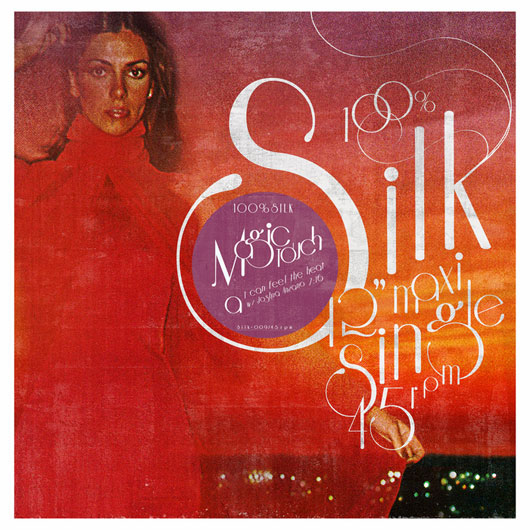
I: Do you see your music going in a specific direction? In some ways, I hear strong influences of, like, classic house, but it still feels pretty personal. Do you think that’s kind of what you ended up with, or was it a specific decision? Do you want to do more [songs] like that?
MT: Well, I was working on the two tracks seperately.
I: “I Can Feel the Heat” and “Clubhouse”?
MT: Yeah. I was like, “Oh, these aren’t going to work together because one is house and is more disco.” Now, I feel like the a-side and b-side could be from different people almost. And the new song I’m working on is different, too, so I guess I’m just gonna go with whatever ideas I have.
I: To me, they do sound different, but not radically so. They don’t clash with each other.
MT: How about you? I feel like your songs are definitely very different, but I could tell they’re all yours just from hearing them.
I: When I started making the tracks that ended up on my first 100% Silk release, I just wanted to make a track, then another track, and kind of experiment with the music. This was like in January and spring of 2010. I feel like this year, things started to form more into a style. So, for the EP I just finished for Planet Mu, I think I was trying to explore some stuff that has come up in my process. I really wanted to make songs expansive and strange. Not like, “Oooh, this so weird,” but to give them a tactile quality, or something like that. Then I also think that I shouldn’t worry about it too much, and just focus on writing good melodies and see what happens. I like how it came out, but it can turn into a dead end to just always be making stuff as weird as possible. That’s not necessarily always so virtuous or exciting. I guess I wanted to explore the stuff that seems more specific to the [Ital] tracks that have come out, especially, like, “Culture Clubs.”
MT: That’s another thing that’s interesting about being in a band versus doing solo stuff. You make the beat and the bassline with certain samplers and certain gear that can only do certain things. Sometimes your sound is based on that. It’s partly also why my stuff all sounds really different. I’ll learn this new piece of gear, and then I’ll be able to do this new trick that changes the music.
I: That’s something I personally try to avoid. I remember sitting almost in this exact spot in your living room in late 2007, and our friend Steve was in his room talking to a friend. His friend was playing him some tracks, and he was like, “This one’s got an 808 and a Juno-6, and this one’s got a 909 and a Juno-106.” And I remember having this intensely averse reaction. Not to the music, which sounded fine, but to that kind of way of talking about it and conceiving of it, where you only articulate the songs through the gear that you’re using. It seemed kind of tragic to me.
MT: I do feel like there’s been a shift of people I know doing, well, not specifically dance music, but definitely electronic music. Maybe because touring in a band and having a practice space has kind of become and really always has been unaffordable.
I: Yeah, it feels like there’s this one ‘snake’ that sort of runs across the country, a thread that connects this crew of people. In general, it seems like a really good time for dance music. There’s all the stuff in England, the footwork stuff in Chicago…
MT: I think also with, like, CDs going to shit, there seems to be more people getting excited about 12″s.
I: But I wonder if it’s really a craze, or if it’s just where my attention is at right now.
MT: Yeah, totally.
I: I mean, people talk about how there’s, like, this new wave of American techno producers and dance-music producers. You’re hearing about stuff all the time, but if I step outside my little bubble there’s all sorts of people who I’m friends with that don’t even know that I’m making tracks. [laughs] They don’t know anything about this stuff. So, I’m not really even sure if it’s a special moment in a historical way or if it’s just a nice moment for us.

